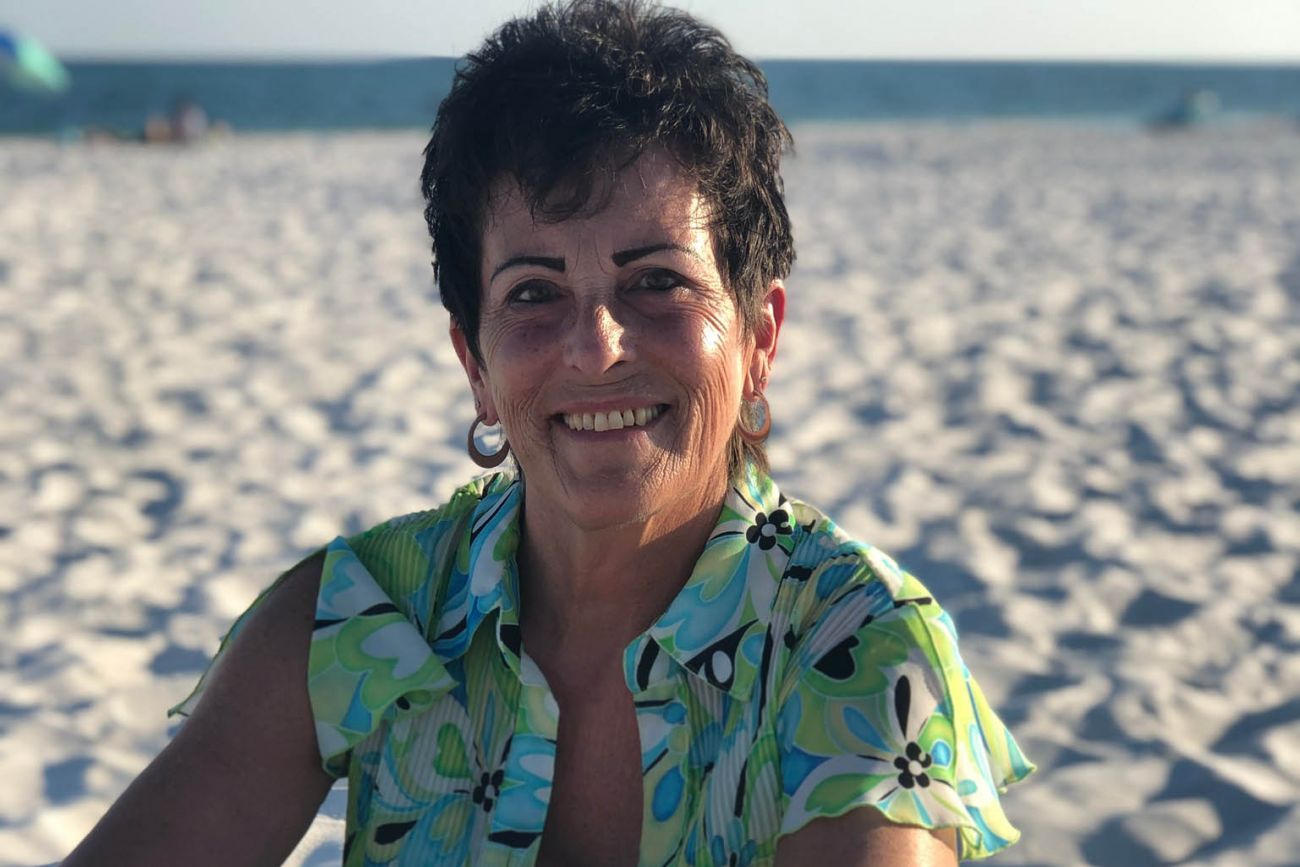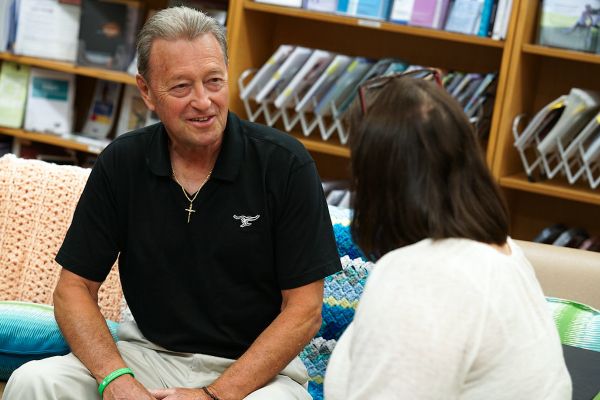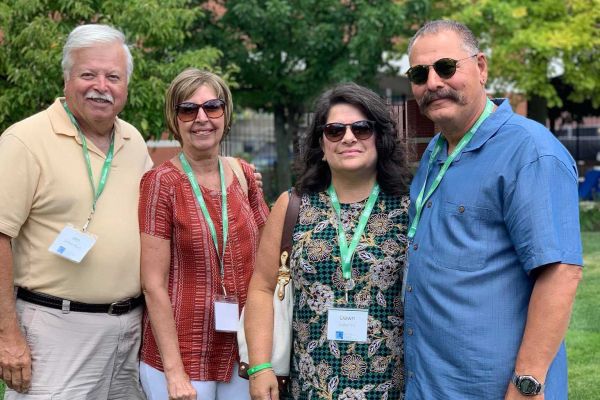Everything happened so fast, Wendy Gloss didn’t have much time to think or react.
“The leukemia came on so quickly,” says Wendy, the Director of Special Programs for the Orchard Park Central School District. “I was doing 10,000 to 12,000 steps a day, and one day I was really tired and wondering why it was so difficult to walk 4,000 steps.”
After calling her doctor and getting some blood work done, she received a call and an urgent order to contact Roswell Park Comprehensive Cancer Center. Within 24 hours she was consulting with her oncology team. Within 48 hours she received her first chemotherapy treatment.
Wendy already knew how hard it is to fight cancer: She was diagnosed with breast cancer nearly six years ago. Although she knew she was getting the best care possible, she was still nervous and scared about going through treatment a second time and having to get a bone marrow transplant.
That’s where Mike Szematowicz comes in.
A nine-year leukemia survivor himself, Mike is a Cancer Coach at Roswell Park, offering a friendly ear and support to newly diagnosed patients. The Cancer Coach Program matches patients with survivors like Mike who can talk with them about their own cancer journeys. Mike received similar help and comfort when he was diagnosed. Since then, he has guided a handful of patients through the mountain of questions and concerns they had after getting the life-changing news.
Mike and Wendy hadn’t met before, but both are parishioners of Our Lady of the Sacred Heart in Orchard Park, NY. Their pastor, Rev. Adolph Kowalczyk, asked Mike to visit Wendy at Roswell Park. As a volunteer and eucharistic minister, Mike was glad to stop by to introduce himself. Later, when Joan Lewis, coordinator of Roswell Park’s Cancer Coach program, asked Wendy if she’d like a coach, she requested Mike.
Roswell Park's Cancer Coach Program
You can connect with a cancer coach or become one yourself.
Learn MoreAmong the advice he has given her: “The staple is to do what they tell you. Listen to your doctors. If you don’t feel right, if something’s wrong, don’t hesitate to let them know. Do exactly what they tell you, following all their instructions, especially dietary.”
He also told her to recognize that some days she might not feel strong, and that’s OK. “You’re going to have days where you don’t have any strength. I advise people, pull those covers over your head and sleep. Sleep it off. Listen to your body. Your body is your best indicator.”
After Wendy’s bone marrow transplant in early March — her donor is a young woman from the United Kingdom — she spent another 36 days in the hospital. Since then, due to the COVID-19 pandemic, all her conversations with Mike have taken place over the phone. He calls her every Thursday, usually after her weekly appointment with her transplant doctor, Maureen Ross, MD, PhD, to see how she’s feeling and progressing.
“He seems to know immediately if I’m having a good day or a bad one,” says Wendy. “He is a very positive man, very uplifting. Every time we speak, he’s smiling, he’s happy, he’s supportive.”
Wendy says she’s grateful for the young woman who gave her a second chance at life, but is disappointed she can’t repay that particular favor. When the time is right, however, she wants to become a Cancer Coach herself.
“I really look forward to talking with Mike every week,” Wendy says. “I also have a CaringBridge page, which he checks in on to see how I’m doing. I’ve been blessed with the care I’ve been given and the people that have touched my life at Roswell.”
The Cancer Coach program is made possible thanks to generous donations to the Roswell Park Alliance Foundation, which also supports Roswell Park’s Resource Center for Patients and Families.
Anyone interested in becoming a Cancer Coach, or looking to be paired with one, can learn more here and fill out an application.
Editor’s Note: Cancer patient outcomes and experiences may vary, even for those with the same type of cancer. An individual patient’s story should not be used as a prediction of how another patient will respond to treatment. Roswell Park is transparent about the survival rates of our patients as compared to national standards, and provides this information, when available, within the cancer type sections of this website.


